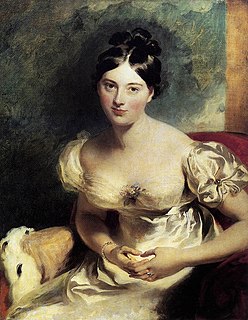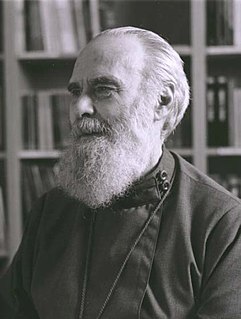A Quote by Marguerite Gardiner, Countess of Blessington
There are some chagrins of the heart which a friend ought to try to console without betraying a knowledge of their existence, as there are physical maladies which a physician ought to seek to heal without letting the sufferer know that he has discovered their extent.
Related Quotes
Mirth is God's medicine. Everybody ought to bathe in it. Grim care, moroseness, anxiety,--all this rust of life, ought to be scoured off by the oil of mirth. It is better than emery. Every man ought to rub himself with it. A man without mirth is like a wagon without springs, in which one is caused disagreeably to jolt by every pebble over which it runs.
A good author, and one who writes carefully, often discovers that the expression of which he has been in search without being able to discover it, and which he has at last found, is that which was the most simple, the most natural, and which seems as if it ought to have presented itself at once, without effort, to the mind.
A physician should take his fee without letting his left hand know what his right is doing; it should be taken without a thought, without a look, without a move of the facial muscles; the true physician should hardly be aware that the last friendly grasp of the hand has been made more precious by the touch of gold
How can you get very far, If you don't know who you are? How can you do what you ought, If you don't know what you've got? And if you don't know which to do Of all the things in front of you, Then what you'll have when you are through Is just a mess without a clue Of all the best that can come true If you know What and Which and Who.
Without freedom of thought, there can be no such thing as wisdom; and no such thing as public liberty without freedom of speech; which is the right of every man as far as by it he does not hurt or control the right of another; and this is the only check it ought to suffer and the only bounds it ought to know.... Whoever would overthrow the liberty of a nation must begin by subduing the freedom of speech, a thing terrible to traitors.
It is wrong for a man to say that he is certain of the objective truth of any proposition unless he can produce evidence which logically justifies that certainty. This is what Agnosticism asserts; and, in my opinion, it is all that is essential to Agnosticism. That which Agnostics deny and repudiate, as immoral, is the contrary doctrine, that there are propositions which men ought to believe without logically satisfactory evidence; and that reprobation ought to attach to the profession of disbelief in such inadequately supported propositions.
The Bible was written between 3,000 and 2,000 years ago, and it's filled with the knowledge that people had in that period of time, some of which you and I rejected long ago. The Bible says that women are property, that homosexuals ought to be put to death, that anybody who worships a false God ought to be executed, that a child that talks back to his parents ought to be stoned at the gates of the city. Those ideas are absurd.
Without knowledge of self there is no knowledge of God Our wisdom, in so far as it ought to be deemed true and solid Wisdom, consists almost entirely of two parts: the knowledge of God and of ourselves. But as these are connected together by many ties, it is not easy to determine which of the two precedes and gives birth to the other.
It seems to me, and I am personally convinced, that the Church must never speak from a position of strength. [These are shocking words.] It ought not to be one of the forces influencing this or that state. The Church ought to be, if you will, just as powerless as God himself, which does not coerce but which calls and unveils the beauty and the truth of things without imposing them. As soon as the Church begins to exercise power, it loses its most profound characteristic which is divine love [i.e.] the understanding of those it is called to save and not to smash.
The hypotheses which we accept ought to explain phenomena which we have observed. But they ought to do more than this; our hypotheses ought to foretell phenomena which have not yet been observed; ... because if the rule prevails, it includes all cases; and will determine them all, if we can only calculate its real consequences. Hence it will predict the results of new combinations, as well as explain the appearances which have occurred in old ones. And that it does this with certainty and correctness, is one mode in which the hypothesis is to be verified as right and useful.







































